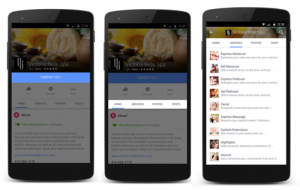— October 5, 2017
This week, I want to blog about how we can use the Gallup Q12 questions so that you, as an individual contributor, can set yourself up for success. I believe that employees should take control of their careers. If we wait for our manager to get us promoted, give us a raise or talk about our successes, we could be waiting a very long time. Managers have large teams and their own careers to worry about. We shouldn’t count on our manager to take care of our career. The Gallup Q12 questions can be used as a foundation to set individual contributors up for success.
The Gallup Q12 questions are used by corporations to measure employee engagement. The premise is that an engaged employee is a productive employee, a happy employee and someone who will stick around. For reference, the questions are listed below and companies want their employees to answer each of the questions in the positive.
Gallup Q12 questions
- Do you know what is expected of you at work?
- Do you have the materials and equipment to do your work right?
- At work, do you have the opportunity to do what you do best every day?
- In the last seven days, have you received recognition or praise for doing good work?
- Does your supervisor, or someone at work, seem to care about you as a person?
- Is there someone at work who encourages your development?
- At work, do your opinions seem to count?
- Does the mission/purpose of your company make you feel your job is important?
- Are your associates (fellow employees) committed to doing quality work?
- Do you have a best friend at work?
- In the last six months, has someone at work talked to you about your progress?
- In the last year, have you had opportunities to learn and grow?
Gallup Q12 for new manager training
A few weeks ago, I blogged about my perspective on how the Gallup Q12 questions could be used as a basis for new manager training. To be clear, the questions are not intended to be used as a new manager training course, they are intended to measure employee engagement. I believe these questions can be used as a foundation for:
- New managers who have NOT received new manager training
- New managers who realize they are probably NOT going to receive new manager training
- Individual contributors who want to become managers. Being able to lead your peers and answering positively to the Gallup Q12 questions will get your name in the hat and at least qualify you for promotion.
If you fall into one of the above three bullets, that manager training post is here.
Individual Contributors
If you are an individual contributor and want to take control of your career, we are getting into the meat of the post.
If you read the 12 Gallup questions as an IC and are NOT able to answer in the positive, there is a problem.
Whether we believe it or not, your manager wants you to be able to answer the Gallup Q12 questions in the positive. Your manager’s behavior may not represent this intention, but if we want to be successful, we need to LOOK, SMELL and SOUND engaged.
Put another way
The employees that have their managers support and ARE successful appear engaged in their manager’s eyes. We are NOT going to wait for our manager to pay attention to us. We are going to take the initiative so we look, smell, and sound engaged.
So, for those of you that are thinking:
- My manager hasn’t come to me with any new opportunity
- I have a manager that doesn’t care about me
- My manager hasn’t asked me for my opinion
We are going to change that.
Gallup Q12 number 1
Do you know what is expected of you at work?
You would be surprised how many people do NOT know what is expected of them at work. They THINK they know what is expected, but they don’t really know.
If you are a bank teller, you know that your job is to help people with their banking needs. Your responsibilities include:
- Cash checks
- Deposit money
- Withdraw money
- Help customers with safe deposit boxes
All well and good. If we show up at 9:00 AM, perform the above and leave at 5:00 PM, we would think we are doing well. If we are getting the occasional customer raving about our service, we probably think we are doing great.
Quantifiable results
- But do we know how many transactions we should be conducting each day compared to the rest of the tellers?
- Do we know if the rest of the tellers are closing out their tills to the penny at the end of each day? Or are they short or over in their receipts and if so, what is the banks average on accuracy when closing out the tills?
- Do we know if other employees are coming up with new procedures or modifying current procedures to save the bank time or money?
If our manager is not sitting down with us and sharing quantifiable, number-driven feedback with us, we really don’t know how we are doing. What employees think and managers think can be two very different storylines.
As an individual contributor with a manager who may not know how to engage their teams, we can take the initiative by turning question number 1 around. The initial question from the Gallup Q12 is: Do you know what is expected of you at work?
We would ask our manager:
“Am I performing to the expected level of performance and is there anything I should be improving on?”
“You are doing great” isn’t enough
Don’t settle for “Yes, you are performing to the level of expected performance”. That is the easy answer that most managers will give. This cop-out answer doesn’t move you forward. We need to show that we are the engaged employee that WANTS to improve. Insist on feedback for improvement.
If you really are perfect in every way and there is no feedback, ask for a raise or more opportunity. Asking for a raise will generate opportunities for improvement. The point being, we need to start the hard conversations that our manager may or may not be thinking about, or worse, may not want to have.
Gallup Q12 number 4
In the last seven days, have you received recognition or praise for doing good work?
If you have NOT received recognition, then this can be a problem. We want our manager in the mindset that we are doing a great job. You want to do such a solid job, your manager takes notice and comments on our performance.
We are NOT going to tell our manager that we want positive feedback on what we are doing.
What we do instead is to update our manager on what we are doing. Updates usually generate a response and feedback, and this my friend is “Nasty”.
The conversation looks like:
“Hey manager Mikey. Last week, I handled 25 customer transactions a day and balanced out my till to the penny all 5 days. This week, I handled 27 customer transactions a day and balanced my till to the penny all 5 days. Next week, I am shooting for 29 customer transactions. For my level of experience, am I on the right track? Is there anything else I could be focused on because I would like to learn about creating cashier checks.”
The point is that we are showing improvement and showing a desire to learn more.
Some folks may think that this sounds braggadocio, but if you do this for 3 weeks and remain consistent, the reports will become routine in your manager’s mind and it will be hard to NOT see improvement.
Gallup Q12 number 11
In the last six months, has someone at work talked to you about your progress?
Most of us have probably not talked about their progress with their manager. Per my Nasty way, my thought is to make moves SON! Do NOT wait for your manager to come to you. We should take the initiative and schedule the appointment. You should bring the talking points.
We want our manager to play the role of consultant to our plan of action. You do not want to put your manager into a position where they need to come up with a career plan. Our career should NOT be their responsibility. Our career is OUR responsibility.
Again, this does not mean we are going to approach our manager and ask, “Can you tell me how much progress I have made in the last 6 months?”
It’s just a progress update
What this should look like is a progress update. This update would generate feedback.
“Hey, manager Mikey. I am currently a bank teller 1 and I want to be a bank teller 2 in the next 6 months. This is what I plan to do (this is the progress I plan to make) so that I qualify for bank teller 2.”
- Learn how to process cashier checks and process 35 of them without errors.
- Learn how to open a safe deposit box account and process 20.
- Have 99.9% accuracy in closing out my till
- Train a new teller in opening and closing a till
Just get your manager to agree to a list
Your manager will agree or disagree with the list, but the goal is to negotiate a list that WOULD qualify you for your next opportunity. Forget about the timeline, just agree on a list and start ticking them off.
Meet with your manager on a regularly scheduled interval and give them a progress update. The point is that we do not have to wait for your manager. If everyone on your team was doing this and getting promoted, your manager would look like a super manager. The point is, your manager will not be offended.
As you can see, taking a pro-active approach and updating your manager on what you are working on, what you have done, and how it helps the company is more of a clarification for your manager. It doesn’t have to be a braggadocio event for yourself.
Take a look at the Gallup Q12 questions and leverage them to start a conversation so you can manage your manager.
Business & Finance Articles on Business 2 Community
(112)






